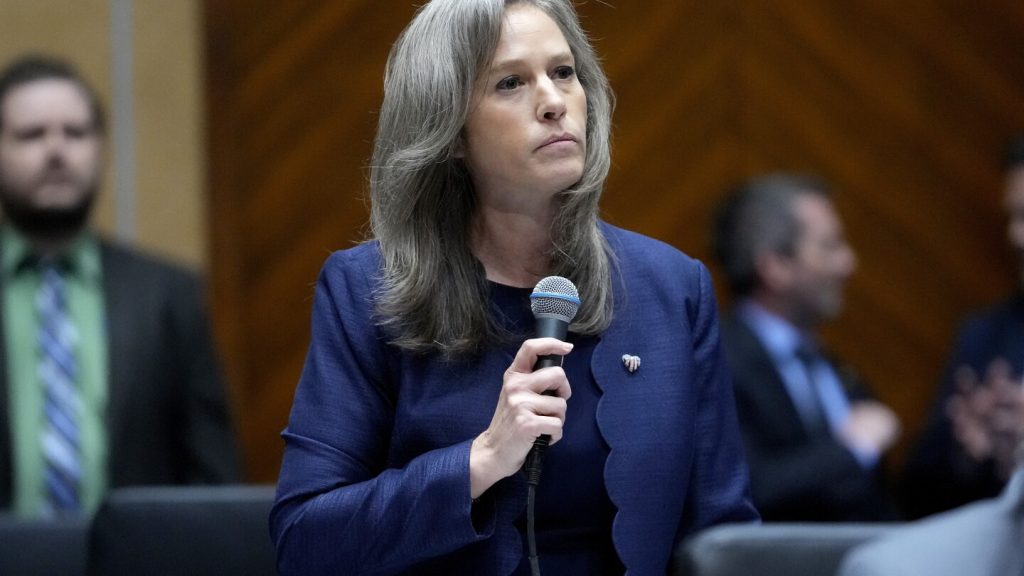Arizona lawmaker Shawnna Bolick recently made headlines for her surprising vote to repeal an 1864 law banning nearly all abortions in the state. Bolick’s support pushed the bill over the finish line, leading to its signing into law by Democratic Governor Katie Hobbs. The decision to vote against her husband, Arizona Supreme Court Justice Clint Bolick, who was part of the majority that restored the near-total ban, reflects the complex and chaotic landscape surrounding abortion access in Arizona.
The Bolicks have deep ties to conservative circles and have been friends with U.S. Supreme Court Justice Clarence Thomas and his wife, Ginni. Clarence Thomas was part of the majority that overturned Roe v. Wade in 2022, and Ginni Thomas has been vocal in urging Republican lawmakers to challenge election results. The Bolicks’ conservative credentials have not shielded them from criticism, as Clint Bolick faces a retention election for another six-year term on the bench and Shawnna faces a primary challenge in her district.
The high court’s ruling to restore the near-total ban on abortions has sparked backlash from both the left and the right. Calls for repealing the ban have intensified, with politicians and advocacy groups weighing in on the controversial decision. Progress Arizona has launched a campaign targeting the justices up for retention election who were part of the majority vote, seeking to hold them accountable for their decisions.
While Arizona voters rarely deny sitting judges another term, the upcoming retention elections for Clint Bolick and Kathryn King could be influenced by the controversial abortion ruling. Democrats are making the abortion issue a focal point in their quest to take control of the state Legislature. Critics of Bolick’s vote to repeal the ban have accused her of siding with pro-abortion activists, highlighting the polarizing nature of the abortion debate in Arizona.
The repeal bill, set to take effect after the legislative session ends, faces opposition from anti-abortion advocacy groups like the Center for Arizona Policy. Republican colleagues have also expressed confusion and disappointment over Bolick’s vote, accusing her of supporting abortions. The legal landscape around abortion in Arizona remains uncertain, particularly with the potential for a ballot measure in November to enshrine abortion access up to 24 weeks in the state constitution.
As the debate over abortion continues to evolve in Arizona, the decisions made by lawmakers like Shawnna Bolick and the judicial rulings by figures like Clint Bolick are likely to face scrutiny and influence the political landscape in the state. The conflicting positions and backlash surrounding the abortion issue underscore the challenges faced by politicians and judges in navigating the complex legal and ethical considerations surrounding reproductive rights.


